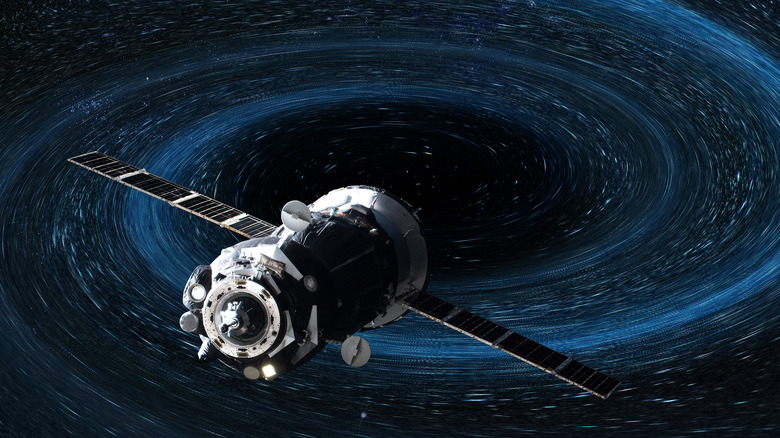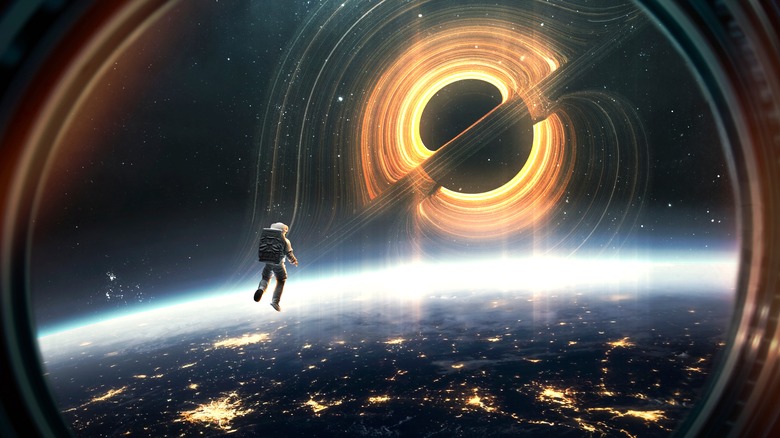What Would Happen If You Fell Into A Black Hole?
If you were of movie-going age in 1979 and went to the theater to see Disney's "The Black Hole," it was probably your first introduction to the space phenomena. Black holes are a region of space where the gravity is so strong that nothing can escape its grasp, including light, as explained by NASA. These celestial bodies usually pop up after a star dies. Matter is squashed down into an infinitesimally small "one-dimensional point" called a singularity, yet has so much mass that density and gravity become infinite, and space and time go on forever (via Physics of the Universe).
Since black holes are invisible to the naked eye, the only way you could tell one was close would be through gravitational magnification, a "lensing" effect that distorts stars around the event horizon, according to Astronomy. At least, that's what scientists think because they don't know for sure – NASA notes that all of the current speculations are based on Albert Einstein's General Theory of Relativity. This uncertainty gives science fiction writers and producers the freedom to come up with fantastical ideas to drive their movies along. But in this case, scientists think they have a pretty good idea of what would actually happen if someone got too close and fell into a black hole.
Spaghetti isn't good when it comes to black holes
First off, know that falling into a black hole would be a one-way ride and not a pretty one. According to Charles Liu (via LiveScience), an astrophysicist at the American Museum of Natural History's Hayden Planetarium, your entire body would become something akin to "toothpaste being extruded out of the tube." Because the gravity inside a black hole is so intense, the body would be simultaneously compressed horizontally while being stretched vertically like a noodle. Funnily enough, this process is called "spaghettification," and we have British astrophysicist Sir Martin Rees to thank for giving us a term that perfectly nutshells this horrifying possibility (via Britannica).
Depending on how the body entered, the first part would stretch further and further until, as Liu explained, it became "a stream of subatomic particles." If the brain entered first, it would break down so quickly into its base atomic particles that a person likely wouldn't even know or understand what was happening to them. Talk about a bad trip. Recently, the aptly named Event Horizon Telescope captured the very first image of Sagittarius A* (Sgr A*), the Milky Way's very own supermassive black hole. Scientists believe that most large galaxies have supermassive black holes at their center.

